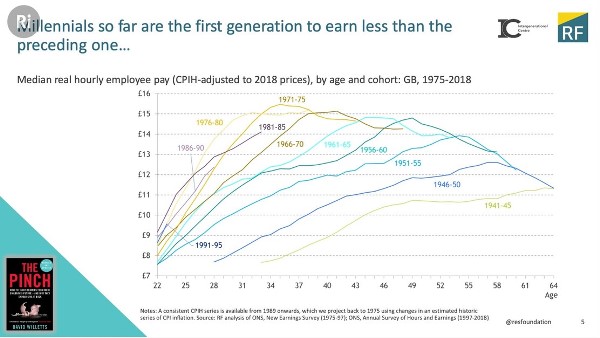One of the graphs presented in Lord David Willetts ‘Have the Boomers Pinched Their Children’s Futures?‘ (refer to previous post ‘How Demographics Can Only Explain Part of the Millennials’ Economic Situation‘) has struck a particular chord with me. In this graph we can see the revenue profile by generation according to age in the UK.

In the speech David Willetts uses the graph to show that for the first time younger generation’s income is lower than previous generation. However I find that the most interesting part of the graph is how it shows that peak income for each generation arrives at a younger age. For people born in the late 1940s just after WW2, it happened in their late 50s; for people born in the late 1960s, when they reach about 40. This all points to a ‘peak income’ sometimes in the decade 2000-2010 with income decreasing later for all.
This observation explains why those that arrive now on the employment market won’t find the same level of opportunities. It is also a question mark about current income levels – across all generations.
Therefore the interpretation of the graph is rather that there is a general loss of income in the last decade. It impacts the start of millennials’ careers as well as all other active generations. This is the key issue that needs to be tackled, rather than inter-generational transfer issues.
